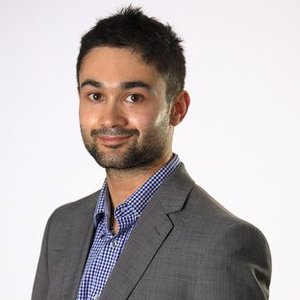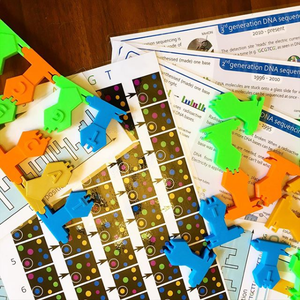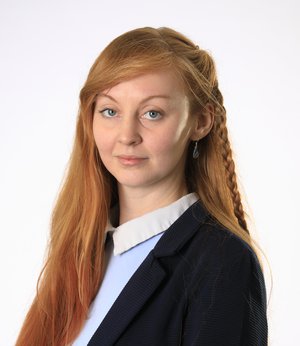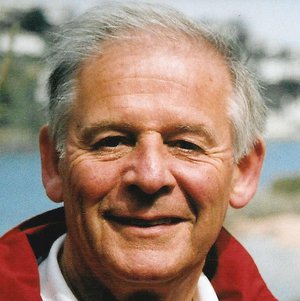Access and Outreach
Matt Garraghan is the Pre-GCSE Project Lead for the Inspire Programme. He outlines the challenges that the Access Team has faced in this unprecedented year.
 The St John’s Inspire Programme is one of the largest access programmes in Oxford, with over 1,300 pupils currently enrolled on our programmes. In spite of the unprecedented challenges of the last year, this is a number that continues to grow, as the invaluable support of our Fellows, alumni and benefactors has enabled us to reach out to more young people across the UK than ever before.
The St John’s Inspire Programme is one of the largest access programmes in Oxford, with over 1,300 pupils currently enrolled on our programmes. In spite of the unprecedented challenges of the last year, this is a number that continues to grow, as the invaluable support of our Fellows, alumni and benefactors has enabled us to reach out to more young people across the UK than ever before.
One of our most ambitious projects is the pioneering Pre-GCSE Inspire Programme, which is being piloted in the College’s two link boroughs in London: Ealing and Harrow. This sustained-contact programme is taking over 300 high-attaining pupils from 24 different non-selective state schools through a three year course, from the age of 13 through to 16, with St John’s funding a designated Teacher Coordinator in each participating school. These Inspire coordinators deliver bespoke material created by the programme to their cohorts in after-school Inspire Clubs, on topics that have so far ranged from black holes and DNA, to the ethics of poverty and global justice, encouraging debate and intellectual curiosity as well as subject engagement. In addition to these clubs, we were also fortunate to have been able to run four large-scale ‘Aspiration Days’ through the programme, including two trips to the London Science Museum, before the COVID-19 pandemic struck. March 2020, of course, was a month like no other, upending even the best-laid plans, and the Inspire Programme was no exception. Within the space of a few weeks, trips, clubs and summer schools were cancelled or suspended, as the programme moved wholly online. However, we were determined that the pupils on the programme would be able to continue to benefit from their participation in the programme. Thanks to the heroic efforts of colleagues in the Inspire Team to keep the wheels rolling, a series of self-guided online classes was created for the Pre-GCSE Programme and released periodically, complete with challenges and competitions for which participants could win prizes. And despite the cancellation of all events in College, the office was delighted to run three simultaneous virtual summer schools during the first week of August 2019 – not only for our Year 9s on the Pre- GCSE Programme, but also for other pupils from nonselective state schools in Years 10-12.
" I thought it was a brilliant programme. Some of our pupils who struggle with confidence for various reasons benefited from this. They grew in confidence and started to think of themselves as skilled academics. I cannot wait to run it next year " Teacher coordinator from Harrow
Beyond the Pre-GCSE Programme, this year has also seen a record-breaking 982 pupils enrolled on our Inspire Programme for Years 10 & 11, an increase from last year of more than 50%, demonstrating a strong appetite for opportunities such as those provided by St John’s. Being online-only, this strand of the programme was open to all pupils in non-selective state schools across the country, and we have been particularly pleased to see pupils registering not only from the College’s own link areas in London and the South Coast, but from across the whole of England, from Northumberland to Dorset. Moreover, there is more to come: we are excited to launch both a revamped programme for Year 12s and a brand-new programme for Year 13s later this year, ensuring that pupils from the ages of 13 right the way through to 18 are able to benefit from one of our programmes.
 Throughout all of this, the barriers that digital poverty can pose to pupils’ access to education have become increasingly apparent in a time of remote learning. Inspire has therefore taken steps to ensure that those on our programmes are not disadvantaged due to lack of online provision; this has included the funding of a number of tablets for pupils on the Pre-GCSE Programme who otherwise lacked access at home.
Throughout all of this, the barriers that digital poverty can pose to pupils’ access to education have become increasingly apparent in a time of remote learning. Inspire has therefore taken steps to ensure that those on our programmes are not disadvantaged due to lack of online provision; this has included the funding of a number of tablets for pupils on the Pre-GCSE Programme who otherwise lacked access at home.
When I joined St John’s in summer 2019, I certainly could not have foreseen the challenges that would emerge half way through my first year. However, it has been a source of great pride to see the whole St John’s community respond so enthusiastically, enabling us to continue to engage with so many young people, and to expand the reach of our programmes. As a result of the pandemic, the challenges of educational disadvantage have grown to unprecedented levels, making continued engagement with young people across the country more important now than ever before. Thanks to the vital support that we receive from St John’s Fellows, alumni and benefactors, the College continues to rise to the challenge.
" It has been a source of great pride to see the whole St John’s community respond so enthusiastically, enabling us to continue to engage with so many young people, and to expand the reach of our programmes. " Matt Garraghan, Pre-GCSE Project Lead for the Inspire Programme
" I feel this programme really helps to give us all that extra push so that we can extend to the best of our abilities because we are all capable. This just gives us more knowledge which helps to make us understand a variety of subjects. " Pupil participant from Ealing
Dr Ana Wallis designs and delivers a wide range of STEM workshops and activities as part of the Inspire Programme. She tells us about how she has adapted to engaging with schools and pupils in a virtual setting.
 The purpose of the Pre-GCSE Inspire Programme is to provide opportunities for pupils to engage with new topics, and to create interesting, interactive extra-curricular activities allowing them to explore subjects in ways they would not usually encounter in the classroom. Having recently completed a DPhil in Genetics, I was involved in designing and creating a number of STEM workshops for the programme, on topics ranging from the physics of black holes, to the impact of plastics on our environment.
The purpose of the Pre-GCSE Inspire Programme is to provide opportunities for pupils to engage with new topics, and to create interesting, interactive extra-curricular activities allowing them to explore subjects in ways they would not usually encounter in the classroom. Having recently completed a DPhil in Genetics, I was involved in designing and creating a number of STEM workshops for the programme, on topics ranging from the physics of black holes, to the impact of plastics on our environment.
One of the early workshops I created was a pair of sessions on DNA, based on my own DPhil research topic: I thought this would be an appropriate theme, as I vividly recall finding genetics confusing when I was in school!
The first workshop examined some basic DNA concepts: how the DNA molecule, ‘genes’, and the way we look are related to one another. We designed some DNA pieces, which we produced using a 3D printer, so that pupils could discover – literally – how DNA fits together. One aspect I particularly liked about this physical representation was that pupils had to try fitting the pieces together in different ways and form their own conclusions, which replicated the scientific process.
The second workshop focused on some ‘real-world’ applications of DNA. We focused on DNA sequencing, as this is an area with many contemporary ethical considerations, and allowed us to incorporate a debate – something that pupils may not often encounter in a STEM subject at school. This interdisciplinary element fitted well with the aims of the Inspire Programme – to encourage pupils to look beyond their syllabus and to link their subjects with their own lives and the wider world.
To enable non-specialist teachers to deliver the workshops, we also created videos to explain some of the key terms and concepts, with animations and examples. The workshops were successfully delivered to over 300 pupils in their schools, and I was delighted that we received very positive feedback from our Teacher Coordinators, with pupils really enjoying both the physical interactivity, and the ability to grapple with some of the most crucial ethical debates in the field.
" In these times, I couldn’t be more grateful that you and others at Inspire acted so swiftly on the feedback I gave … about the lack of IT and web provision. It has been truly wonderful to see the way that Oxford acted on this with the swift result that a student without, now has a tablet to work off and therefore can continue her learning successfully. " Teacher Coordinator from Ealing
Peter McManus (Literae Humaniores, 1959) spent most of his life working in IT, developing new IBM products and founding a software company, and then spent many years being a Trustee of a water harvesting charity working in rural Rajasthan and Gujarat. He tells us why he continues to support our Access and Outreach programmes.
 To me, giving back is important. When we are students, we are largely in ‘take’ mode, almost by definition, and we are privileged by our first-class education for the rest of our lives. Like most, I have always felt a strong affinity with the College, and I think it is especially important to support efforts to mitigate the enduring advantage of access enjoyed by those from privileged backgrounds. I was lucky to be educated at a grammar school where Classics teaching reached a good standard. In many modern state schools, such teaching is simply not possible with the resources available, and the College Outreach Programme seeks to remedy this situation. I hope to be able to continue to give to St John’s in the future, because there is no evidence that today’s social divide will narrow. If anything, it continues to widen despite our aspirations to make a difference.
To me, giving back is important. When we are students, we are largely in ‘take’ mode, almost by definition, and we are privileged by our first-class education for the rest of our lives. Like most, I have always felt a strong affinity with the College, and I think it is especially important to support efforts to mitigate the enduring advantage of access enjoyed by those from privileged backgrounds. I was lucky to be educated at a grammar school where Classics teaching reached a good standard. In many modern state schools, such teaching is simply not possible with the resources available, and the College Outreach Programme seeks to remedy this situation. I hope to be able to continue to give to St John’s in the future, because there is no evidence that today’s social divide will narrow. If anything, it continues to widen despite our aspirations to make a difference.
" I hope to be able to continue to give to St John’s in the future, because there is no evidence that today’s social divide will narrow. " Peter McManus (1959, Literae Humaniores)
Click here find out more about our Access and Outreach programmes
We would like to take this opportunity to thank all of the donors who have supported the Inspire programmes. If you would be interested in contributing to our Access and Outreach efforts, click here to find out more.